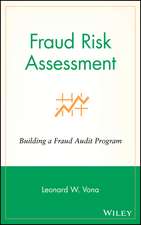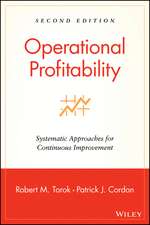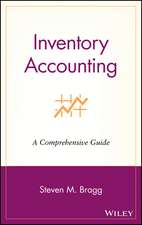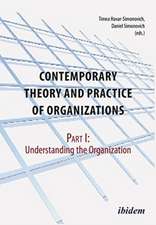The Nature and Determinants of Disclosure Adequacy: An International Perspective
Autor Ahmed Riahi-Belkaouien Limba Engleză Hardback – 13 ian 1997 – vârsta până la 17 ani
Preț: 437.84 lei
Preț vechi: 707.79 lei
-38% Nou
Puncte Express: 657
Preț estimativ în valută:
83.81€ • 91.06$ • 70.44£
83.81€ • 91.06$ • 70.44£
Carte tipărită la comandă
Livrare economică 21 aprilie-05 mai
Preluare comenzi: 021 569.72.76
Specificații
ISBN-13: 9781567200867
ISBN-10: 1567200869
Pagini: 240
Dimensiuni: 156 x 235 x 26 mm
Greutate: 0.52 kg
Editura: Bloomsbury Publishing
Colecția Praeger
Locul publicării:New York, United States
ISBN-10: 1567200869
Pagini: 240
Dimensiuni: 156 x 235 x 26 mm
Greutate: 0.52 kg
Editura: Bloomsbury Publishing
Colecția Praeger
Locul publicării:New York, United States
Notă biografică
AHMED RIAHI-BELKAOUI is CBA Distinguished Professor of Accounting at the University of Illinois at Chicago. He is the author of many Quorum titles, including his most recent book,Multinationality and Firm Performance (1996).
Cuprins
PrefaceDisclosure Adequacy: A Contingency ApproachDisclosure Adequacy and Economic GrowthDisclosure Adequacy and Relation to Country Return and RisksDisclosure Adequacy and Managerial, Academic, and Professional InfluencesDisclosure Adequacy and Human DevelopmentDisclosure Adequacy and Economic, Political, and Civil IndicatorsDisclosure Adequacy, Professional Self-Regulation, and Cultural DevelopmentIndex










